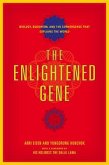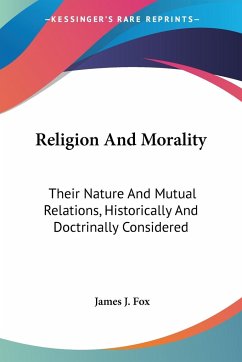This interdisciplinary book offers a rich exploration of the meanings of 'nature' and 'the natural' as religious, philosophical and moral norms. Readers will find an extensive and critical review of recent ethical discussions of developments in biotechnology.
B. Andrew Lustig, Baruch A. Brody, and Gerald P. McKenny Nearly every week the general public is treated to an announcement of another actual or potential "breakthrough" in biotechnology. Headlines trumpet advances in assisted reproduction, current or prospective experiments in cloning, and devel- ments in regenerative medicine, stem cell technologies, and tissue engineering. Scientific and popular accounts explore the perils and the possibilities of enhancing human capacities by computer-based, biomolecular, or mechanical means through advances in artificial intelligence, genetics, and nanotechnology. Reports abound concerning ever more sophisticated genetic techniques being introduced into ag- culture and animal husbandry, as well as efforts to enhance and protect biodiversity. Given the pace of such developments, many insightful commentators have proclaimed the 21st century as the "biotechnology century. " Despite a significant literature on the morality of these particular advances in biotechnology, deeper ethical analysis has often been lacking. Our preliminary review of that literature suggested that current discussions of normative issues in biotechnology have suffered from two major deficiencies. First, the discussions have been too often piecemeal in character, limited to after-the-fact analyses of particular issues that provoked the debate, and unconnected to larger concepts and themes. Second, a crucial missing element of those discussions has been the failure to reflect explicitly on the diverse disciplinary conceptions of nature and the natural that shape moral judgments about the legitimacy of specific forms of research and their applications.
B. Andrew Lustig, Baruch A. Brody, and Gerald P. McKenny Nearly every week the general public is treated to an announcement of another actual or potential "breakthrough" in biotechnology. Headlines trumpet advances in assisted reproduction, current or prospective experiments in cloning, and devel- ments in regenerative medicine, stem cell technologies, and tissue engineering. Scientific and popular accounts explore the perils and the possibilities of enhancing human capacities by computer-based, biomolecular, or mechanical means through advances in artificial intelligence, genetics, and nanotechnology. Reports abound concerning ever more sophisticated genetic techniques being introduced into ag- culture and animal husbandry, as well as efforts to enhance and protect biodiversity. Given the pace of such developments, many insightful commentators have proclaimed the 21st century as the "biotechnology century. " Despite a significant literature on the morality of these particular advances in biotechnology, deeper ethical analysis has often been lacking. Our preliminary review of that literature suggested that current discussions of normative issues in biotechnology have suffered from two major deficiencies. First, the discussions have been too often piecemeal in character, limited to after-the-fact analyses of particular issues that provoked the debate, and unconnected to larger concepts and themes. Second, a crucial missing element of those discussions has been the failure to reflect explicitly on the diverse disciplinary conceptions of nature and the natural that shape moral judgments about the legitimacy of specific forms of research and their applications.








